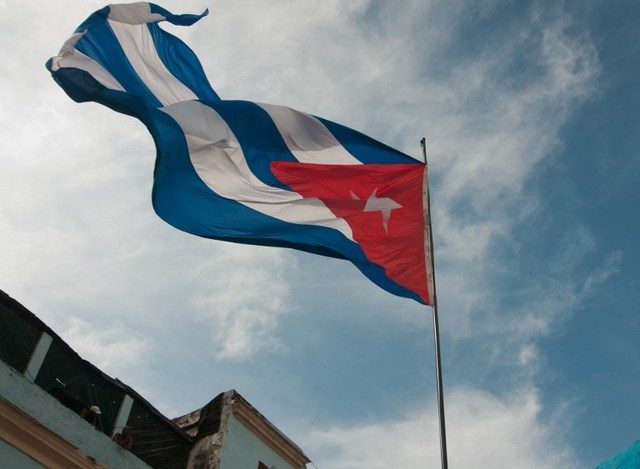SUMMARY
This is AI generated summarization, which may have errors. For context, always refer to the full article.

WASHINGTON DC, USA (2nd UPDATE) – The United States further eased restrictions on business and travel with Cuba Friday, September 18 as it presses forward in rebuilding long-frozen relations with its former Cold War foe.
Two months after formally restoring diplomatic relations with Havana, the US made it easier for Americans to establish and operate businesses in Cuba, removed remittance limits and widened travel opportunities to the Caribbean island nation.
It also cleared up small, irksome restrictions like ones that had prevented representatives of US businesses working in other countries from taking their own computers into Cuba, and which blocked the use in the United States of Cuban-developed apps for mobile phones and computers.
“A stronger, more open US-Cuba relationship has the potential to create economic opportunities for both Americans and Cubans alike,” said Treasury Secretary Jacob Lew.
“By further easing these sanctions, the United States is helping to support the Cuban people in their effort to achieve the political and economic freedom necessary to build a democratic, prosperous, and stable Cuba.”
The new moves further erode the sanctions that were in place since the early 1960s until President Barack Obama reversed course by announcing an opening to the communist country last December. (READ: Kerry calls for democracy in Cuba as US flag raised)
And taken together, they make it easier for US companies, including those of the large community of Cuban-Americans, and Cuban entrepreneurs to begin building businesses in the communist-run economy.
But many of the allowed activities still apply to a limited list of “authorized” travelers and businesses, as Washington continues to move cautiously and Obama administration policy remains hamstrung by the sweeping 1996 Helms-Burton law, which toughened the original 1960 embargo on Cuba.
In Friday’s announcement, the Treasury and Commerce departments removed limits on remittances from the United States to Cuba, as well as on the amount of money people can hand-carry to Cuba.
Authorized US travelers to Cuba will be able to open bank accounts there, form joint ventures with Cuban firms, and open offices, warehouses and retail outlets.
The new rules allow Cubans traveling to the United States to open bank accounts; allow any American to do business with Cubans outside of Cuba; and further ease restrictions on companies providing air and sea travel services to Cuba.
And they clarify that those authorized to open offices and businesses in Cuba include US exporters of permitted goods like farm products and construction materials; providers of telecommunications and Internet services; news bureaus; and education and religious groups.
In a phone call with Obama on Friday, Cuban President Raul Castro “emphasized the need to deepen the reach” of the measures taken so far and reiterated his call to end the full embargo, his office said in Havana.
The White House confirmed the call and said the leaders had discussed ways to “advance bilateral cooperation, even as we will continue to have differences on important issues and will address those differences candidly.”
‘New openings for business’
The new moves expand on earlier easings of trade and travel restrictions begun in January. But the ban on general US tourist visits to Cuba remains in place, and the government continues to restrict visits to 12 categories of US travelers. And there are many categories of goods that cannot be traded with Havana.
Washington said its action aims to charge up the island’s emerging private business sector.
“In addition to expanding our commercial engagement with the Cuban people, these additional adjustments have the potential to stimulate long overdue economic reform across the country,” said US Commerce Secretary Penny Pritzker.
In Havana, Cubans cheered the move.
“I think it’s great,” said Gonzalo Perez, 69. “We’ve all been waiting for a new opening in relations.”
The Washington Office on Latin America, a US human rights group, also applauded the removal of restrictions.
“These regulations create new opportunities for business in the United States and in support of emerging entrepreneurs in the island, who are leading the way towards a new economic model in Cuba,” said Marc Hanson, the group’s senior associate for Cuba.
But the White House was strongly condemned by US Senator Marco Rubio, a conservative Cuban-American from Florida who is running for the Republican nomination for the presidency.
“The Obama policy of pouring more American money into the Castro regime’s coffers won’t make America safer or the Cuban people freer,” he said in a statement. – Paul Handley, AFP/Rappler.com
Add a comment
How does this make you feel?
There are no comments yet. Add your comment to start the conversation.